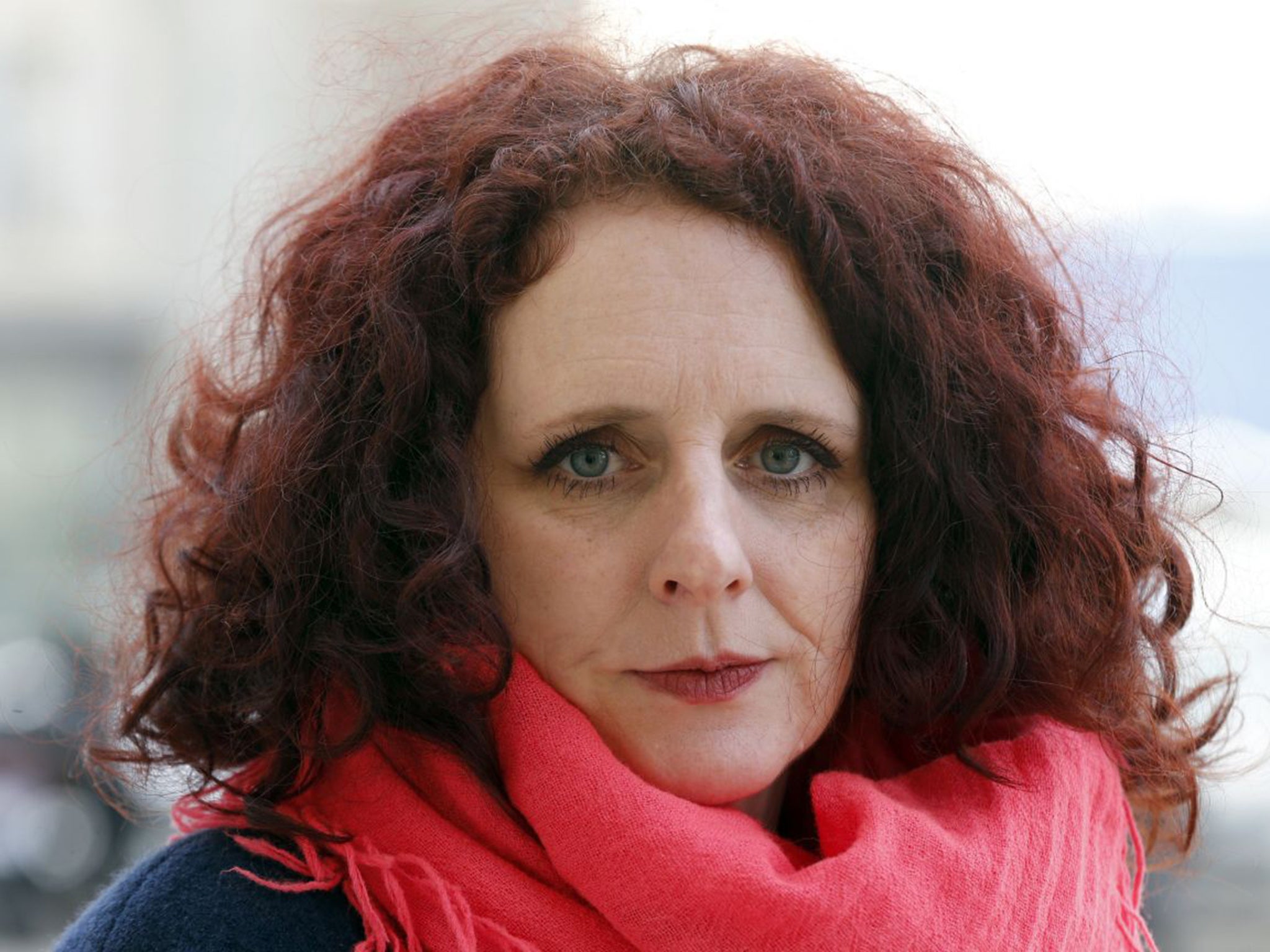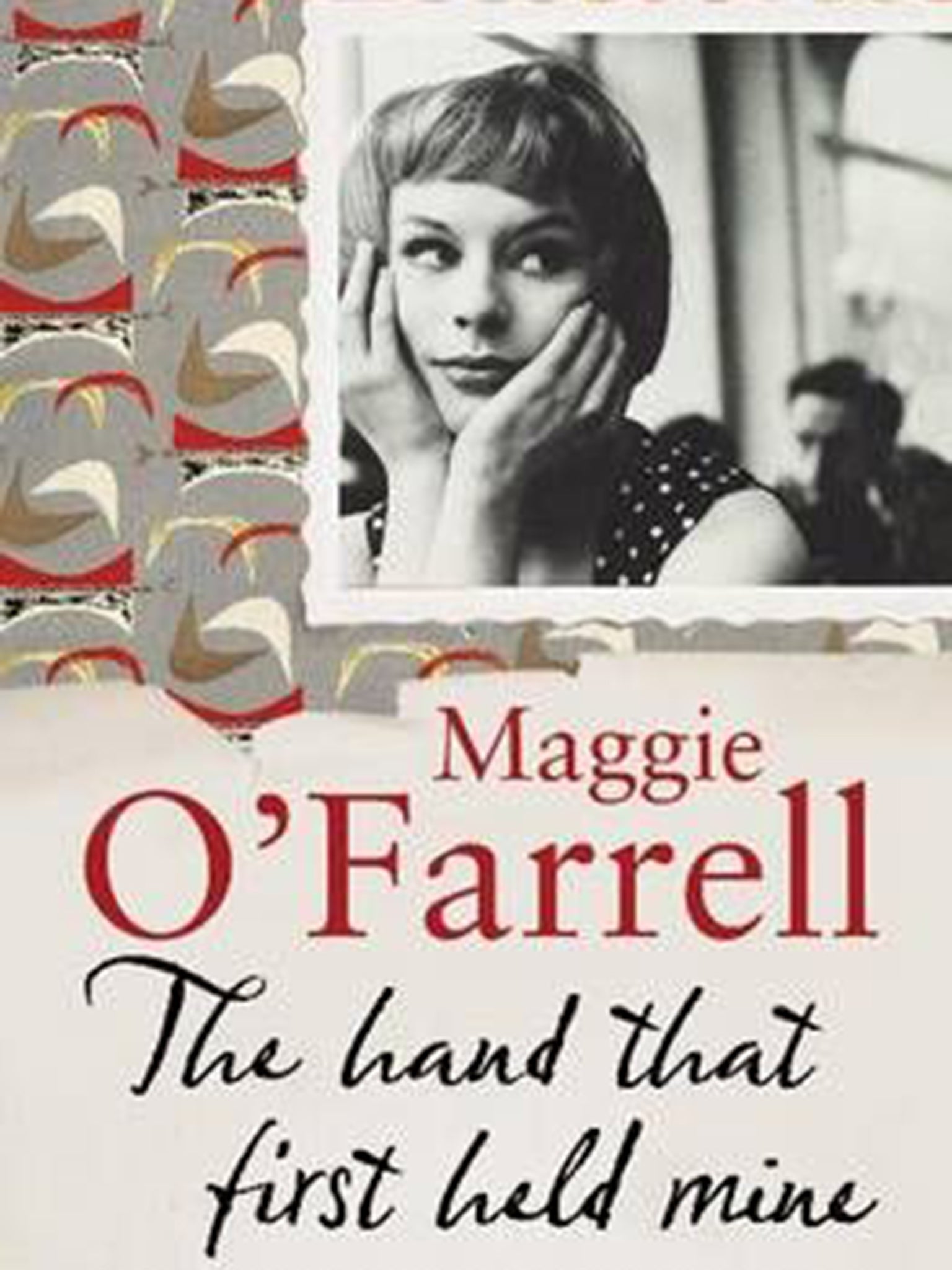Maggie O’Farrell: Best-selling author explains why she doesn't read reviews or tweet thoughts about her life
'Mother or novelist, I’m a silent witness'

Your support helps us to tell the story
From reproductive rights to climate change to Big Tech, The Independent is on the ground when the story is developing. Whether it's investigating the financials of Elon Musk's pro-Trump PAC or producing our latest documentary, 'The A Word', which shines a light on the American women fighting for reproductive rights, we know how important it is to parse out the facts from the messaging.
At such a critical moment in US history, we need reporters on the ground. Your donation allows us to keep sending journalists to speak to both sides of the story.
The Independent is trusted by Americans across the entire political spectrum. And unlike many other quality news outlets, we choose not to lock Americans out of our reporting and analysis with paywalls. We believe quality journalism should be available to everyone, paid for by those who can afford it.
Your support makes all the difference.For the first minutes of my conversation with the novelist Maggie O’Farrell, I compete for her attention with her daughter who is home from school with flu. An audiobook of Peter Pan comes to the rescue. In any case, O’Farrell says, “Nothing could be less interesting for her than listening to her mother talk about books.”
With three young children (she has another daughter and son with her husband, the writer William Sutcliffe), O’Farrell has become an old hand at balancing domestic exigencies with life as a bestselling author. “Part of the skill of writing at home with small children is ring-fencing your work time. You have to develop the skill of walking past the heaps of laundry.” Do she and Sutcliffe share childcare duties? “Share is not quite the word I would use. He is kind of around … I’m not sure how it all works, but it must do because the books get written.”
The latest proof is This Must Be the Place, O’Farrell’s seventh novel, which she began shortly after the birth of her third child in 2013. “I don’t know how I would have written this book if she hadn’t been so in love with sleep. I really deserved one after the other two. I would have had six kids if they had all been like that. I know this is going to make new parents spit feathers ...” Flu-stricken daughters notwithstanding, O’Farrell is otherwise luxuriating in the “nice lull” between finishing a novel and its publication in May.
Born in Coleraine, County Londonderry, in 1972, hers was a peripatetic childhood courtesy of her father’s academic career. We chat about her early years in Dublin, Wales and Scotland; working for The Independent on Sunday; and her path to success as a writer. If anything connects these stages, it is how ordeals great and small have deepened her relationship with literature. Individuals responding to specific adversity fire the best of O’Farrell’s writing.
Instructions for a Heatwave depicted a family confronting marital breakdowns, illiteracy and loss, all set against 1976’s famously broiling summer and the Troubles in Northern Ireland. This was partly inspired by O’Farrell’s memories. “It was difficult being Irish in the 1970s. My dad remembers being turned away from restaurants and hotels which had the classic sign ‘No blacks, no dogs, no Irish’.” O’Farrell recalls a school trip when she was 15: “I was on my Irish passport. I was strip-searched.”

Other tests are more joyously life-altering, such as becoming a mother, which inspired the Costa Prize-winning The Hand that First Held Mine. The gravest trial of all was when eight-year-old O’Farrell contracted encephalitis. Two days after complaining of a severe headache she was confined to bed. “A couple of days after that I was unable to walk. There were periods when they said I was going to die. When I was sent home, they said I would never walk again.”
O’Farrell did eventually walk again after two long years of intensive therapy, during which she was initially unable to hold a pen or a book. Yet this was when she fell in love with literature. “I listened to Felicity Kendal reading My Naughty Little Sister,” she laughs. “To this day, if I hear Kendal’s voice it shoots me back to that time.” O’Farrell later graduated to reading “all the books on my bookshelf. When I was done, I would read them again.”
If the act of rereading the Moomins or The Secret Garden sharpened her critical faculties, the months of solitude and quiet gave unintentional lessons in closely observed families that typifies her best work. “You become this silent witness. You are in a room on your own and listening to life next door or downstairs going on without you … You become that person who is noting it all down but not interacting, which, oddly, is the position of the novelist within the novel.”
At the time, the idea of actually writing for a living was unthinkable. It wasn’t until she encountered other novelists-in-waiting while reading English at Cambridge that she even admitted the possibility. These included her future husband. “He was the first person who ever said to me: ‘I want to be a writer.’ I was astonished by the baldness and focus of that ambition. I may have said: ‘Me too’, but I was probably too shy.”
After a year working for a computer magazine in Hong Kong, she joined the arts desk of The IoS in 1996. This proved both challenging and instructive. “It was an incredible experience. It was a very young staff – quite dynamic and very determined. There was a slightly Blitz atmosphere: we’ve got no money, but are going to put out a newspaper anyway.”
Highlights included interviewing Ang Lee at a moment’s notice, and suddenly being sent to cover the Edinburgh Fringe. “It taught me a huge amount – about speed and how you mustn’t be precious about what you write. You can’t spend all day agonising over an adverb.”
O’Farrell’s fiction would later benefit from more formal workshops: with the poets Jo Shapcott, at Cambridge, and Michael Donaghy, at London’s City University. A turning point came during an Arvon course that she took as respite from the more enervating aspects of arts journalism. “I edited TV listings for about a year. I was probably the worst person in the world to do that. I didn’t watch TV and still don’t.”
The Arvon classes took place during a freezing January in Yorkshire. Summoned by the tutors – Elspeth Barker and Barbara Trapido –O’Farrell thought she was going to be kicked off the course. Instead, they praised the story that eventually became her debut, After You’d Gone. O’Farrell was so overcome that she ran outside into “the middle of nowhere and fell into a ditch at the side of the road. I was up to my armpits in frozen water. For a moment I thought, I am going to die here. I did manage to stagger out.”
These days O’Farrell ignores praise or censure, save for a few trusted readers. She doesn’t read reviews, good or bad.
“It isn’t that I can’t take the criticism. What you don’t need is to hear yourself explained to yourself, or for any sliver of self-consciousness to come into your writing.”
Nor will she tweet her thoughts about life, art or anything else. She recasts Cyril Connolly’s famous warning “there is no more sombre enemy of good art than the pram in the hall ...”, as “the greatest enemy to good art is the router in the hall”.
She says: “I have had conversations with other writers who say their concentration is totally shot by their need to check Twitter.”
O’Farrell cites a lack of skill and inclination for her own rejection of social media. “If you are going to engage with that medium, you have to do it really well. I’m not sure even if I had the time I would really do it.”
And in any case, there simply aren’t enough hours in her day. “I think you only have so much petrol in the tank. I would rather use my words for something else.”
This Must Be the Place will be published by Tinder Press in May
Join our commenting forum
Join thought-provoking conversations, follow other Independent readers and see their replies
Comments